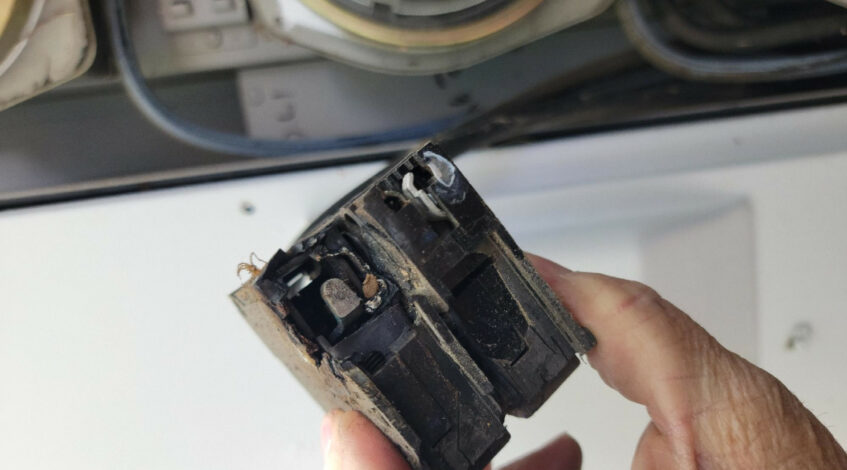There are plenty of DYI instructional videos and resources from big box home improvement stores that can guide you along with most simple fixes and additions. If you are a do-it-yourselfer (DYI), you can save some money by making repairs yourself. There are plenty of home improvement fixes you can do yourself to save money that don’t involve electricity. Working on electrical circuits can be dangerous and even deadly if not done correctly and safe. The risks of working with electricity on your home include shock, injury, damage to your home, and a home fire. When not done correctly, new additions, such as adding an outlet can pose hazards months if not years later. That said, if you are comfortable working on home electrical projects, you have every right to work on your own home as long as your work meets the National Electric Code and conforms to your local building codes. If an injury or fire does happen, you can bet your insurance company will be investigating.
There are some telltale signs you should consult with a licensed electrician that may lead to needed electrical repair or upgrades.
- Switches and Outlets: If they ever seem warm to the touch it could be an indication that the wiring may not be well insulated or that the wires are not securely fastened. You may experience intermittent power to a light or appliance plugged into the outlet. If you experience this intermittent power, there may be arcing that is occurring in the outlet or switch and can be dangerous.
- Burn Marks: if you see any blackened or scoring discoloration, this could indicate arcing, a spark powerful enough to cause damage or injury. The cause may be loose or broken wiring.
- Breakers: if you have a part of your home where the circuit breakers keep tripping (turning off), you may be overloading that circuit with appliances. The easy fix for this is to reduce the number of things plugged into that circuit to reduce the power demand. You can upgrade your panel by adding a breaker and run a new circuit that splits the power demand load so you can keep all your appliances plugged in and working.
- Older Plugs: If you have an older house, you may have outlets that have only two plugs (not 3 with one being a ground). Current National Electrical Code requires all safe outlets to have a ground and any circuit around water (such as kitchens and bathrooms) to have a safe GFCI plug. Replacing new grounded outlets and GFCI safety outlets are simple and common for licensed electricians to do.
- Burning Smell: If you have ever smelled electrical burning, you will likely not forget it. If you identify a smokey scent that you are having difficulty identifying the source, but it’s near an outlet, switch, or electrical panel, you should turn off the electrical circuit and call a licensed electrician.
- Buzzing in The Walls: If you hear buzzing sounds coming from inside the wall, it could be a batch of bees (not likely) or a wiring issue inside your wall. Turn off the electrical circuit and call a licensed electrician to help troubleshoot the issue.
- Permits and Inspections: If you are doing any remodeling, the local government may require you to get a permit. The most common required permit if for installing or moving a hot tub or spa. Licensed electricians will know how to apply and obtain any proper permits you need.
The bottom line: be safe and do what’s comfortable for you. Licensed electricians can perform a variety of services for you and your home. Many electricians can do regular voltage projects as well as low voltage fixes and additions. Low voltage wiring includes things such as network data cabling and home automation systems. While low voltage is generally not as dangerous as regular voltage, low voltage installations and troubleshooting can be challenging.
Be safe and call a licensed electrician, we can help diagnose, troubleshoot, and add electrical features to your home.

